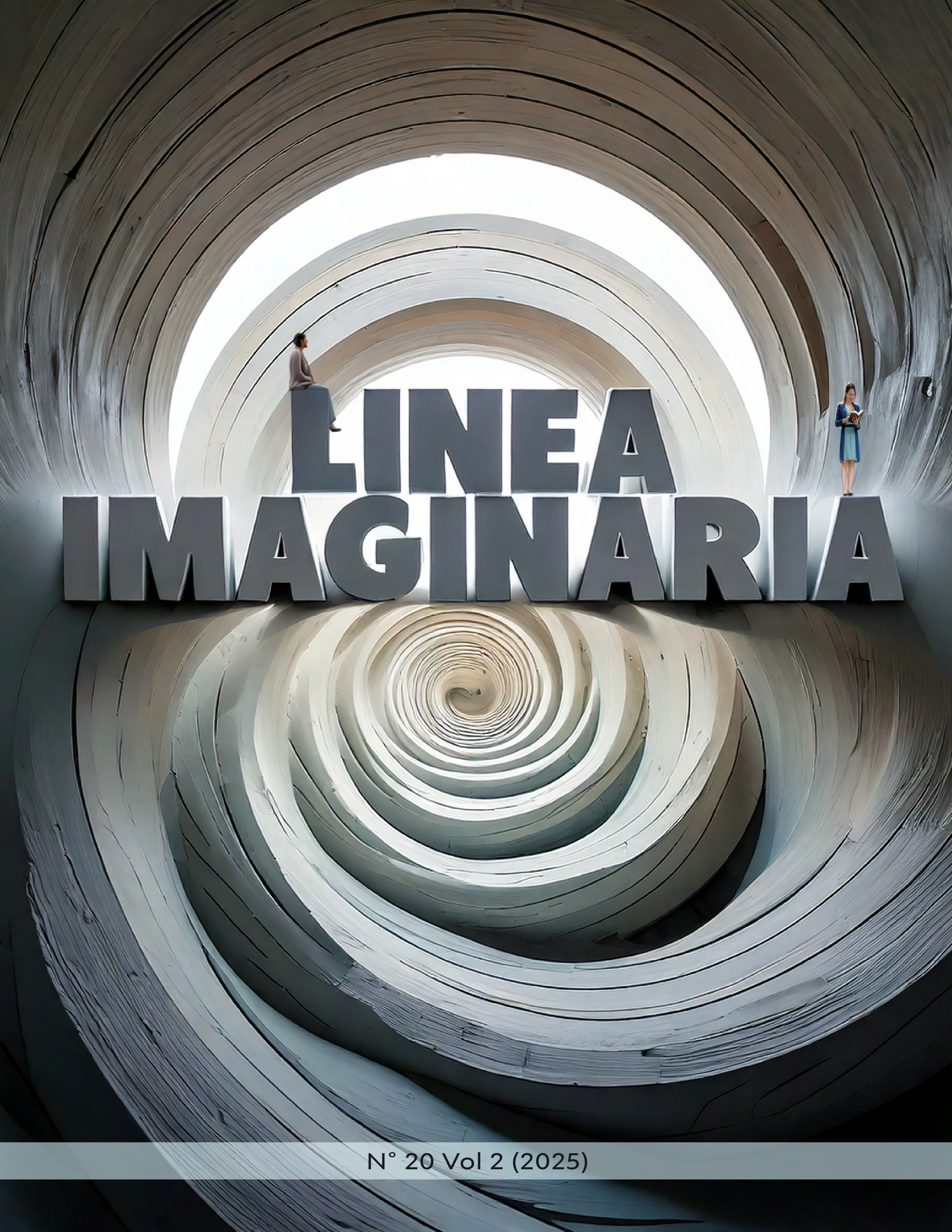REDEFINING ACADEMIC PERFORMANCE AS A REFERENCE FOR ADAPTATION IN A COLOMBIAN EDUCATIONAL INSTITUTION
DOI:
https://doi.org/10.56219/lneaimaginaria.v2i20.3762Keywords:
academic performance, meaning, redefinitionAbstract
This study presents a theoretical framework for generating a theoretical contribution related to the redefinition of academic performance for its adaptation to a Colombian educational institution. The research emerged from an analysis of conceptions of academic performance at an institution in Bucaramanga. To this end, it was necessary to identify the thoughts and beliefs of educational stakeholders regarding academic performance, describe their experiences and experiences with academic performance, and thus derive, based on the findings, a theoretical contribution to guide the redefinition of academic performance in the educational institution. The study was supported by a theoretical framework that presents the international and national theoretical background of the object of study, a legal framework, and a perspective from the complexity of the subject. The methodology was framed within a qualitative study, using an interpretive paradigm and a phenomenological approach. Five teachers, five students, and three parents were selected as key informants. They provided their insights in a semi-structured interview, a technique within the framework of academic performance, the central axis. The information was then organized, then the informants were coded, and the information analyzed was categorized, yielding emerging categories: conception from a cognitive and traditional perspective, axiological projection, educational marketing, educational quality, personal development, imagery, social representations, and internal and external processes that inform the theorization of the construct of academic performance.
Downloads
References
Camarena, Chávez G., & Gómez V. (1985). Reflexiones en torno al rendimiento escolar y a la eficiencia terminal.
Cordero López, C. F. ., & León García, M. (2021). La atención pedagógica y rendimiento académico. Reflexiones teóricas y estrategia para la acción. Yachana Revista Científica, 10(2), 27–39. https://doi.org/10.62325/10.62325/yachana.v10.n2.2021.656
Erazo, O.A. (2012). El rendimiento académico, un fenómeno de múltiples relaciones y complejidades. Revista Vanguardia Psicológica Clínica Teórica y Práctica, 2(2), pp. 144-173.
Everaert-Desmedt (2004), La semiótica de Peirce. Traducción por Hugo Balmaceda, 2014.
Fermoso, P. (1985). Teoría de la educación. México D. F., México: Trillas
Grasso, P. (2020). Rendimiento académico: un recorrido conceptual que aproxima a una definición unificada para el ámbito superior. Revista de Educación, 0(20), 89-104. Recuperado de https://fh.mdp.edu.ar/revistas/index.php/r_educ/article/view/4165
Hernández, M. (2021). Motivación y rendimiento académico basado en la postura de Abraham Maslow. República bolivariana de Venezuela. Universidad pedagógica experimental libertador.
Hernández, R., Fernández-Collado, C. y Baptista, L. (2006). Metodología de la Investigación (4ta Edic). DF, México. McGraw Hill.
Husserl, E. (2015). La idea de la fenomenología. Cinco lecciones. Traductor Miguel García Baró. Fondo de Cultura Económica Edición: 1ª edición, México,
Lambert, César. (2006). Edmund Husserl: la idea de la fenomenología. Teología y vida, 47(4), 517-529. https://dx.doi.org/10.4067/S0049-34492006000300008
Massé, C., Juárez, R. (2015). Hacia una resignificación teórica crítica de la práctica educativa. Revista de Antropología Experimental, 15, 201-212
Maxwell, J. A. (1996). Qualitative research design: an interactive approach. SagePublications, 1996. Páginas 1-13. Traducción de María Luisa Graffigna. 1. Un modelo para el diseño de investigación cualitativo.
Ministerio de Educación Nacional. (1994) Ley 0115 de 1994 en http://www.mineducacion.gov.co/1621/article-85906.html
Ministerio de Educación Nacional. (1994). Decreto 1860 de 1994 en http://www.mineducacion.gov.co/1621/article-86240.html
Mogollón, N. (2021). El contexto social vinculado al rendimiento académico en estudiantes de básica primaria. Una perspectiva compleja de explorar. República bolivariana de Venezuela. Universidad pedagógica experimental libertador.
Moral Santaella, C. (2006). Criterios de validez en la investigación cualitativa actual. Revista de Investigación Educativa, 24(1), 147–164. Recuperado a partir de https://revistas.um.es/rie/article/view/97351
Morales, L., Morales, V., y Holguín, S. (2016). Rendimiento académico. Revista Electrónica Humanidades, Tecnología y Ciencia del Instituto Politécnico Nacional, (15), 1-5. Recuperado de http://revistaelectronica-ipn.org/Contenido/16/HUMANIDADES_16_000382.pdf
Navarro, R. (2003). El rendimiento académico: concepto, investigación y desarrollo. REICE. Revista Iberoamericana sobre Calidad, Eficacia y Cambio en Educación, 1(2),0.[fecha de Consulta 6 de Junio de 2022]. ISSN: . Disponible en: https://www.redalyc.org/articulo.oa?id=55110Novaez, M. (1986). Psicología de la actividad escolar. México: Editorial Iberoamericana. Londoño, J. (2013). Análisis de los modelos pedagógicos implementados en el sistema educativo no oficial del municipio de Santiago de Cali. Universidad nacional de Colombia. Sede Palmira. https://repositorio.unal.edu.co/bitstream/handle/unal/21720/7810015.2013.pdf?sequence=1&isAllowed=y
OECD. (2019) PISA 2018 Results. Colombia - Country Note. Volumes I-III. Disponible: https://www.oecd.org/pisa/publications/PISA2018_CN_COL_ESP.pdf
Sánchez Buitrago, J. O. (2010). Hacia un paradigma emergente de la planeación: resignificación desde las instituciones universitarias. Editorial Unimagdalena.
Sandín Esteban, M. Paz. (2000). Criterios de validez en la investigación cualitativa: De la objetividad a la solidaridad. Revista de investigación educativa, 18(1), 223-242.
SALGADO LEVANO, Ana Cecilia. Investigación cualitativa: diseños, evaluación del rigor metodológico y retos. liber. [online]. 2007, vol.13, n.13 [citado 2024-11-17], pp.71-78. Disponible en: <http://www.scielo.org.pe/scielo.php? script=sci_arttext&pid=S1729-48272007000100009&lng=es&nrm=iso>. ISSN 1729-4827.
Tejeda Díaz, R. (2015). El aporte teórico en investigaciones asociadas a las ciencias pedagógicas. Didasc@lia: Didáctica Y educación ISSN 2224-2643, 6(6), 103–120. Recuperado a partir de https://revistas.ult.edu.cu/index. php/didascalia/article/view/438
Tonon de Toscano, G. (2008). Reflexiones latinoamericanas sobre investigación cualitativa. Capítulo 2: La entrevista semi-estructurada como técnica de investigación.
Van Manen, M. (1999). The practice of practice. En: Lange, M.; Olson, J., Hansen, H. y Bÿnder, W. (Eds.). Changing Schools/Changing practices: Perspectives on educational reform and teacher professionalism. Lovaina: Garant.
WEBER, Max. “Ensayo sobre metodología sociológica”. Amorrortu editores, 3era reimpresión, 1990. Buenos Aires. Martínez, M. (2004). Ciencia y arte en la metodología cualitativa. México: Trillas.208
Downloads
Published
How to Cite
Issue
Section
License
Copyright (c) 2025 LÍNEA IMAGINARIA

This work is licensed under a Creative Commons Attribution-NonCommercial-ShareAlike 4.0 International License.
La revista Línea Imaginaria conserva los derechos patrimoniales (copyright) de las obras publicadas, que favorece y permite la reutilización de los mismos bajo la licencia Creative Commons Atribución-NoComercial-CompartirIgual 4.0 , por lo cual se pueden copiar, usar, difundir, transmitir y exponer públicamente, siempre que se cite la autoría y fuente original de su publicación (revista, editorial, URL y DOI de la obra), no se usen para fines comerciales u onerosos y se mencione la existencia y especificaciones de esta licencia de uso. Si remezcla, transforma o crea a partir del material, debe distribuir su contribución bajo la misma licencia del original.














